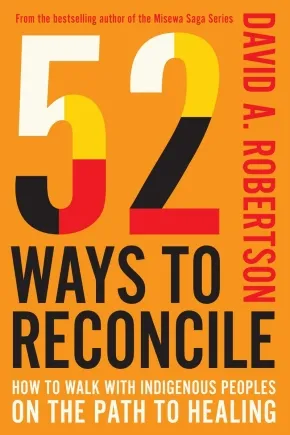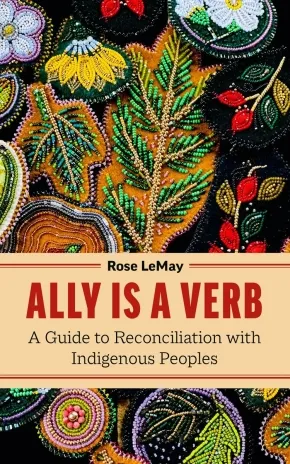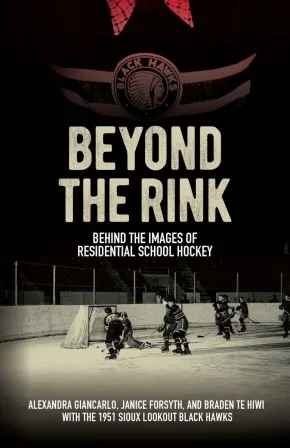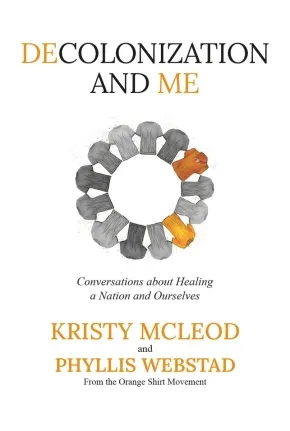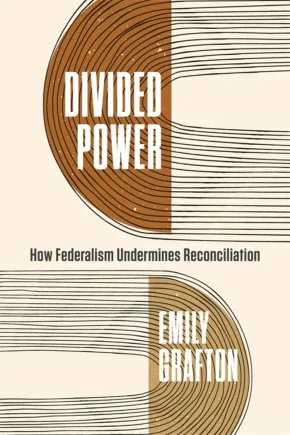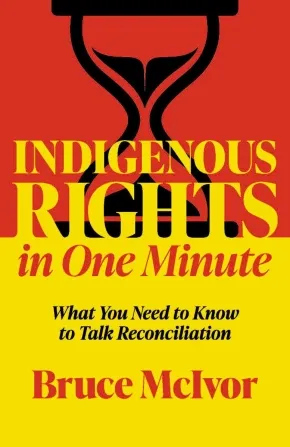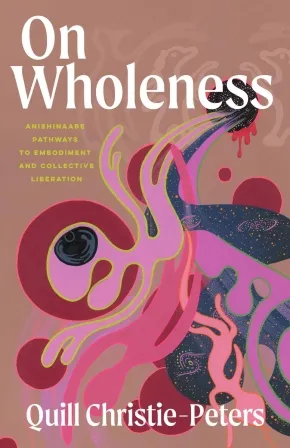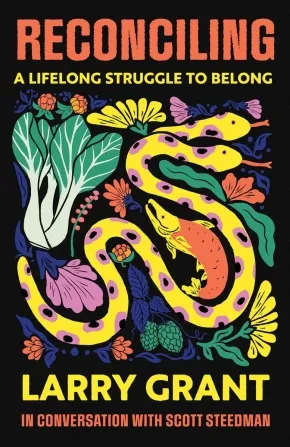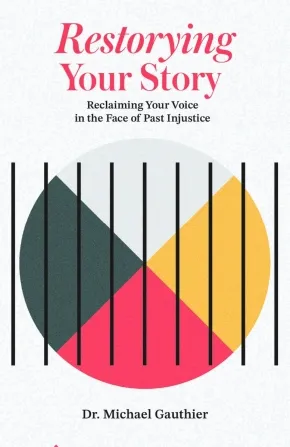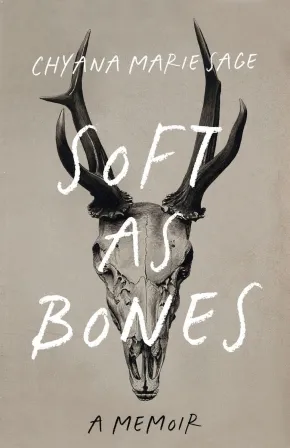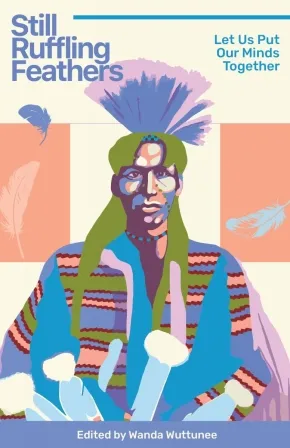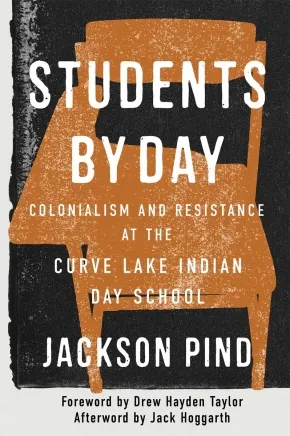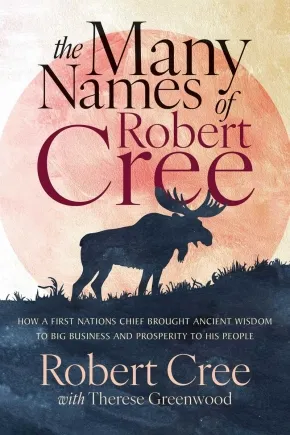Legacy and Reconciliation
Synopsis:
In 2004, settler scholar Emanuelle Dufour became aware of a “silence” with regard to residential schools and ongoing colonialism, systemic racism, inadequate curricular material in schools, and sought to find answers by meeting with community members, Elders, spokespeople, students, professionals, families, and many others.
Dufour is an artist at heart, and the product of her findings became a “carnet de rencontres,” a notebook of coming-togethers, in which her fifty+ interlocutors are rendered “speaking,” quite literally, on and within the pages, while advocating for the importance of Indigenous cultural security within the education system. Their presence is undeniable, and their voices carry the narrative.
Originally published as C'est le Québec qui est né dans mon pays!, this translation creates a bridge, from one colonial language to another, that will enable conversations across and beyond spaces and languages. It aims to shed light on colonial mainstream narratives in Canada and, more precisely, in Québec, by considering the politics of linguistic hegemony and the double exiguity that Indigenous peoples often find themselves in, calling for a better understanding of how the province’s specific colonial history has had a profound and continued impact on its 11 Indigenous Nations. This book’s unusual (academically-speaking) form as a “carnet”, or diary, becomes an anthology of statements of witnessing, which, coupled with the illustrative narrative, bears its decolonizing mission. Quebec Was Born in My Country! ultimately is about foregrounding common and collective experiences, with the crucial goal of furthering education.
Educator & Series Information
This graphic novel that explores colonial history in Québec is part of the Indigenous Imaginings series.
Translated by Sarah Henzi.
Additional Information
216 pages | 9.00" x 12.00" | Paperback
Synopsis:
From bestselling author of the Misewa Saga series David A. Robertson, this is the essential guide for all Canadians to understand how small and attainable acts towards reconciliation can make an enormous difference in our collective efforts to build a reconciled country.
52 Ways to Reconcile is an accessible, friendly guide for non-Indigenous people eager to learn, or Indigenous people eager to do more in our collective effort towards reconciliation, as people, and as a country. As much as non-Indigenous people want to walk the path of reconciliation, they often aren’t quite sure what to do, and they’re afraid of making mistakes. This book is the answer and the long overdue guide.
The idea of this book is simple: 52 small acts of reconciliation to consider, one per week, for an entire year. They’re all doable, and they’re all meaningful. All 52 steps take readers in the right direction, towards a healthier relationship between Indigenous and non-Indigenous people and a time when we are past trauma. By following these steps, we can live in stronger and healthier communities equally, and respectfully, together.
Additional Information
224 pages | 5.00" x 8.00" | Hardcover
Synopsis:
Your next step on the journey of reconciliation starts here.
What can you do to be a better ally for your Indigenous colleagues, community members, and friends? By actively listening to the history and current lived experiences of Indigenous peoples, you can take steps to address the inequities they continue to face. Author Rose LeMay notes that if you continually educate yourself, you will see many opportunities to be an ally.
This insightful book suggests how to enter the field of reconciliation in a good way, in your community and your workplace. You will learn:
-more about the true history shared by Indigenous peoples and colonial governments
-why reconciliation is mostly the responsibility of non-Indigenous people
-approaches to intervene when you see racism happening
-better ways to respond to emotions that come up when doing the work of an ally
-how to be an active team player for equity and inclusion
LeMay describes key principles to promote reconciliation, deepen your practice of allyship, and contribute to meaningful change.
Additional Information
200 pages | 5.00" x 8.00" | Paperback
Synopsis:
Teammates, champions, Survivors
In 1951, after winning the Thunder Bay district championship, the Sioux Lookout Black Hawks hockey team from Pelican Lake Indian Residential School embarked on a whirlwind promotional tour through Ottawa and Toronto. They were accompanied by a professional photographer from the National Film Board who documented the experience. The tour was intended to demonstrate the success of the residential school system and introduce the Black Hawks to "civilizing" activities and the "benefits" of assimilating into Canadian society. For some of the boys, it was the beginning of a lifelong love of hockey; for others, it was an escape from the brutal living conditions and abuse at the residential school.
In Beyond the Rink, Alexandra Giancarlo, Janice Forsyth, and Braden Te Hiwi collaborate with three surviving team members-Kelly Bull, Chris Cromarty, and David Wesley-to share the complex legacy behind the 1951 tour photos. This book reveals the complicated role of sports in residential school histories, commemorating the team's stellar hockey record and athletic prowess while exposing important truths about "Canada's Game" and how it shaped ideas about the nation. By considering their past, these Survivors imagine a better way forward not just for themselves, their families, and their communities, but for Canada as a whole.
Reviews
"These three survivors-Kelly, David, and Chris-inspire us not only for what they have done for their communities in the aftermath of the residential school system but also for how crucial hockey and sports are in bringing Indigenous communities together, like we see in the Little NHL Tournament. Our history and the lessons we've learned are vital, and Beyond the Rink does an excellent job of highlighting this." — Ted Nolan, former NHL Player & Coach, Olympic Coach, and author of Life in Two Worlds: A Coach's Journey from the Reserve to the NHL and Back
"On its face, Beyond the Rink is a compelling story of a residential school hockey team from northern Ontario touring Ottawa and Toronto in the 1950s. But it is much more than that: with a National Film Board photographer accompanying them every step of the way, the players are props in a public relations exercise meant to obscure the true conditions in residential schools.
This is an unflinching and nuanced look behind the PR veil, a story of loss, triumph, perseverance, tragedy, and memory. It is also a detailed account of the machinery of residential schools and the trauma they inflicted. And it is a revealing look at the power of photographs, which can be used to both illuminate and mislead.
At its heart, Beyond the Rink is the story of twelve Indigenous hockey players, who, like their white counterparts, loved the game for the thrill of competition, but also as an escape from the relentless control and exploitation they faced on a daily basis, even if they were being exploited while doing it. This is the story of twelve boys, told through the lens of three of them, trapped in a world they barely understood, a world that was not the least bit interested in understanding them, and in many ways still isn't." — Gord Miller
"The authors have spent decades working with the Survivors whose stories they share and centre in this book. Beyond the Rink, Behind the Image does not simply tell the story of a hockey team; it demonstrates how sport within the context of residential schools was a tool of colonization." — Karen Froman
"It is difficult to overstate the significance of this book. The scholarship is sound as well as original in context and content, and Survivor testimony is respected and communicated in a theoretically sophisticated way." — Travis Hay
Additional Information
184 pages | 6.00" x 8.50" | 36 b&w illustrations, bibliography | Paperback
Synopsis:
This book invites readers to step into a space of reflection on your personal relationship with truth, reconciliation, and Orange Shirt Day.
Written in response to the increase of residential school denialism, Phyllis Webstad and Kristy McLeod have collaborated to create a book that encourages readers to face their own biases. This book challenges readers through a series of sensitive conversations that explore decolonization, Indigenization, healing, and every person’s individual responsibility to truth and reconciliation. Centered around the Orange Shirt Day movement, and a National Day for Truth and Reconciliation, these conversations encourage readers to unpack and reckon with denialism, biases, privilege, and the journey forward, on both a personal and national level.
Within each chapter, Phyllis Webstad draws on her decade of experience (sharing her Orange Shirt Story on a global level and advocating for the rights of Indigenous Peoples) to offer insights on these topics and stories from her personal journey, which co-author and Métis scholar, Kristy McLeod, helps readers to further navigate. Each section includes real denialist comments taken from social media and Kristy's analysis and response to them. Through empathy-driven truth-telling, this book offers an opportunity to witness, reflect, heal, and be intentional about the seeds we hope to plant for the future, together.
Additional Information
350 pages | 5.70" x 8.25" | Hardcover
Synopsis:
Reconciliation, as set out by the Truth and Reconciliation Commission, is a process of understanding the Canadian state's genocide against Indigenous Peoples and creating a new relationship between Indigenous Peoples and settlers based on mutual respect and dignity. Given the racism and paternalism embedded in the Canadian state and related institutions, building such a relationship is a monumental task, but in addition, there is a major structural roadblock in the way: federalism, the political system that organizes Canadian governance.
Divided Power argues that Canada’s system of federalism, rooted in settler colonialism, has dispossessed Indigenous Peoples for settler benefit. Far from being a neutral, balanced way to distribute responsibilities and powers, the division between the state and provinces and territories obstructs Indigenous Peoples’ agency and governance. Under such coercive political exclusion, how can truth and reconciliation be fully achieved? Emily Grafton meticulously traces the ways that federalism limits the potential for reconciliation and proposes alternative power-sharing models.
Guiding readers through the terrain of debate, Grafton deftly and accessibly merges a political analysis of federalism with a clear assessment of settler colonialism to argue that reconciliation will be incomplete for as long as the current division of powers persists. Divided Power points to a promising approach to holding the Canadian state responsible for integrating the principles of truth and reconciliation into its very foundation.
Reviews
“Emily Grafton explores Canadian federalism – not the usual division of powers between the federal and provincial governments, but between the colonized and the colonizer. Federalism, Grafton argues, was informed by Indigenous political frameworks but has been torqued by colonial assumptions about Indigenous inferiority so as to require colonial dominance and Indigenous subordination. This book is a useful antidote to the complacent endorsement of the settler state status quo, so prevalent in scholarship and in politics.” - Joyce Green, Ktunaxa Nation, Professor Emerita, University of Regina; Elder-Auntie, CPSA Reconciliation Committee
“Grafton exposes the evolution and coloniality of Canadian federalism in its unjust and mundane efforts to diminish Indigenous sovereignties. Divided Power is a tour de force of alternatives, and you’ll never think of federalism the same way after reading it!” - Ajay Parasram, author of Pluriversal Sovereignty and the State
Additional Information
192 pages | 6.00" x 9.00" | Paperback
Synopsis:
From veteran hockey reporter Patrick Johnston and Gino’s longtime friend Peter Leech comes the authorized biography of Gino Odjick.
In the 1980s and ’90s, National Hockey League games were very different from the nimble, skill-focused displays we see today. One of the greatest differences—and one of the sport’s more popular facets at the time—was the widespread presence of “enforcers”: hulking, battle-scarred players whose main task was to police the sport by chasing down and brawling with opponents who had broken unwritten codes determining which aspects of violence counted as dishonorable or unjustified.
When hard-hitting Vancouver Canucks player Gino Odjick emerged in the early 1990s, he quickly became one of the game’s most feared enforcers and revered teammates, a sign of a new era for the team, racking up 296 penalty minutes in the 45 games he played in his rookie season. Hailing from Kitigan Zibi, an Algonquin community near Maniwaki, Quebec, Gino was one of the few Indigenous players in the NHL at the time. But it was Gino’s ferocious play contrasted by his genuinely affable and openhearted personality off the ice that won him a special place in the hearts of Canucks supporters.
Yet legends often obscure the human stories behind them. Patrick Johnston and Peter Leech look beyond Gino’s legendary persona, drawing on insights from family members, friends, and teammates to recount Gino’s early years in a loving household that was always ready to welcome foster children. Gino’s father, Joe, had suffered the lonely traumas of the residential school system, and the experience had instilled a commitment in the family to those who were less fortunate.
The book also details Gino’s eventual struggles with alcohol abuse, and how he responded by taking on the role of empathetic mentor to young Indigenous people, travelling from community to community to hear their stories and offer hope. He never wavered in this role, even as he confronted serious illnesses, including chronic traumatic encephalopathy (CTE) and the rare blood disorder that he survived for years longer than expected, but that eventually led to his death at age fifty-two.
Gino is a moving tribute to a beloved hockey legend.
Reviews
"Gino was the greatest teammate; he had such a huge heart and knew his role better than anyone in the league. Gino loved being a Vancouver Canuck and gave back to the community in so many ways. He will be greatly missed by his family, friends, and fans. This book will give people insight into his remarkable life."—Geoff Courtnall
“Gino provides a compelling account of the life of a beloved Vancouver Canuck. From his humble beginnings in Quebec to NHL stardom and beyond, Odjick was dedicated to the well-being of teammates and the Indigenous community. This is an excellent tribute to an exceptional man.”—Randi Druzin, author of Between the Pipes and Behind the Mask
Additional Information
288 pages | 6.00" x 9.00" | b&w insert | Hardcover
Synopsis:
Internationally renowned as an expert in Aboriginal law and an advocate for Indigenous rights, Bruce McIvor delivers concise, essential information for Canadians committed to truth and reconciliation.
A shortage of trustworthy information continues to frustrate Canadians with best intentions to fulfill Canada’s commitment to reconciliation with Indigenous Peoples. To meet this demand, lawyer and historian Bruce McIvor provides concise, plain answers to 100 essential questions being asked by Canadians across the country.
During his nearly three decades advocating for Indigenous rights and teaching Aboriginal law, McIvor has recorded the fundamental questions that Canadians from all corners of society have asked to advance reconciliation: Why do Indigenous people have special rights? What is the Doctrine of Discovery? Who are the Métis? Why was the Calder decision important? What is reconciliation? McIvor supplies the answers Canadians are looking for by scrapping the technical language that confuses the issues, and speaks directly to everyone looking for straight answers. Throughout, McIvor shares his perspective on why reconciliation as envisioned by the courts and Canadian governments frustrates Indigenous people and what needs to change to overcome the impasse. McIvor’s explanations of complex legal issues demonstrate a unique mix of a deep knowledge of the law, the ability to write clearly and concisely, practical experience from the frontlines of advocating for First Nations in courtrooms and at negotiation tables across the country, and a profound passion for justice rooted in his work and personal history.
To ensure the country’s reconciliation project progresses from rhetoric to reality, ordinary Canadians need straightforward answers to fundamental questions. McIvor provides the answers and context to support a thoughtful and respectful national conversation about reconciliation and the fulfillment of Canada’s commitment to a better future for Indigenous people.
Additional Information
208 pages | 5.50" x 8.50" | 25 colour and b&w photographs | Paperback
Synopsis:
A brilliant exploration of the body as a site of settler colonial impact, centring embodied wholeness as a pathway to our collective liberation.
This fierce and enlightening book reimagines the way we understand settler colonialism-through the body itself. Anishinaabeg visual artist Quill Christie-Peters takes us on a journey that begins before birth, in a realm where ancestors and spirits swirl like smoke in the great beyond. But once we enter the world, our bodies are shaped and scarred by colonial forces.
In poetic and raw storytelling, Quill shares her own experiences of gendered violence and her father's survival of residential school, revealing how colonialism disconnects us from ourselves. Yet, through an Anishinaabeg lens, the body is more than just flesh-it extends to ancestors, homelands, spirit relations, and animal kin.
Through reflections on childbirth, parenting, creative practice, and expansive responsibility as pathways to wholeness, Quill explores how reconnecting with the body can be an act of resistance and healing. She shows that wholeness-despite pain and displacement-is not just possible but essential for liberation, not only for Indigenous people but for all of us.
Additional Information
288 pages | 5.50" x 8.50" | Paperback
Synopsis:
A celebration and in-depth exploration of Canada’s West Coast through an Indigenous and immigrant lens, Reconciling weaves together personal tales and tough histories for guiding steps toward true understanding.
A personal and historical story of identity, place, and belonging from a Musqueam-Chinese Elder caught between cultures.
It’s taken most of Larry Grant’s long life for his extraordinary heritage to be appreciated. He was born in a hop field outside Vancouver in 1936, the son of a Musqueam cultural leader and an immigrant from a village in Guangdong, China. In 1940, when the Indian agent discovered that their mother had married a non-status man, Larry and his two siblings were stripped of their status, suddenly labeled “bastard children.” With one stroke of the pen, they were no longer recognized as Indigenous.
In Reconciling, Larry tells the story of his life, including his thoughts on reconciliation and the path forward for First Nations and Canada. His life echoes the barely known story of Vancouver — and most cities in the Americas, from Cusco to Mexico City, from New York to Toronto. It combines Indigenous traditions with key events of the last two centuries, including Chinese immigration and the Head Tax, the ravages of residential schools, and now Indigenous revival and the accompanying change in worldview. Each chapter takes the form of a series of conversations between Larry and writer Scott Steedman and is built around one pivotal geographical place and its themes, including the Musqueam reserve, Chinatown, the site of the Mission Residential School, the Vancouver docks, and the University of British Columbia.
When Larry talks about reconciliation, he uses the verb reconciling, an ongoing, unfinished process we’re all going through, Indigenous and settler, immigrant and Canadian-born. “I have been reconciling my whole life, with my inner self,” he explains. “To not belong was forced upon me by the colonial society that surrounded me. But reconciling with myself is part of all that.”
Reviews
“Musqueam Elder Larry Grant’s intimate eyewitness accounts of huge changes in the region’s landscape and its evolving relationship with his people are a must-read for people who want to join Canada’s journey towards reconciliation.” — Paul Yee, author of Saltwater City
“Conversing with the ideal listener, the inquisitive, sensitive journalist Scott Steedman, Larry Grant speaks unflinchingly of his dual heritages and how, for most of his life, he had to suppress one or another or both. Steedman presents Grant’s spoken prose with pristine clarity, and so governmental crimes and real-estate wrongs are laid bare, and unbearable is our outrage, but necessary is our courage to rectify and reconcile.” — George Elliott Clarke, author of Where Beauty Survived: An Africadian Memoir
“Larry Grant’s conversational memoir is a poignant and honest recollection of identity politics as well as a meditation on bearing witness and surviving ecological and cultural displacement. His wise words invite you to reflect on how all of us can better reconcile with the past, present, and future and how we can never escape the fact that everything in this world is connected.” — Donna Seto, author of Chinatown Vancouver: An Illustrated History
Additional Information
232 pages | 5.50" x 8.50" | 16 black and white halftones; bibliography; table of contents | Paperback
Synopsis:
The stories we tell ourselves about our lives matter. How we make sense of the past affects how we make sense of the present— it can mean the difference between continuing patterns of harm and being the one to break the cycle. Scholar and author Michael Gauthier knows this struggle intimately. As a young Indigenous man grappling with the lasting effects of colonialism and intergenerational trauma, Michael turned to addiction to ease the pain and found himself in the prison system. In the intervening years, Michael has worked to understand how Indigenous people can find empowerment through the act of restorying their own lives. Gauthier draws on his PhD research in which he carried out Restorying circles using the Medicine Wheel as a guide to help formerly incarcerated Indigenous men map a new future by looking to their past. Now in Restorying Your Story, Gauthier invites readers to explore the universal application of restorying, and how it can be a powerful tool for all of us to build a good life.
Additional Information
150 pages | 8.50" x 5.50" | Paperback
Synopsis:
A poetic memoir as intricately woven as a dreamcatcher about overcoming the pain of generational trauma with the power of traditional healing.
In her deeply affecting memoir, Soft as Bones, Chyana Marie Sage shares the pain of growing up with her father: a crack dealer who went to prison for molesting her older sister. She details the shame and guilt she carried for years after her family's trauma as she went from one dysfunctional relationship to another, from one illegal drug to another. In revisiting her family's history and weaving in the perspectives of her mother and sisters, Chyana examines the legacy of generational abuse, which began with her father's father, who was forcibly removed from his family by the residential schools and Sixties Scoops programs.Yet hers is also a story of hope, as it was the traditions of her people that saved her life. In candid, incisive, and delicate prose, Chyana braids personal narrative with Cree stories and ceremonies, all as a means of healing one small piece of the mosaic that makes up the dark past of colonialism shared by Indigenous people throughout Turtle Island.
Reviews
"Chyana Marie Sage's writing is a gift that gleams with all of its teeth and skin and soft parts of the earth ... A stunning new voice that pushes the boundaries of form, whose stories swirl across time like sweetgrass braids, like tendrils of smoke." — Kinsale Drake, author of The Sky Was Once a Dark Blanket
"A searing, poetic memoir filled with resilience and strength ... for anyone on a journey of reconciling the pain of the past with the hopes for the next generations." — Dallas Goldtooth, writer, actor, and community organizer
"Chyana Marie Sage writes with an unflinching emotional clarity, lyrical prose, and a wisdom well beyond her years." — Tanya Talaga, author of The Knowing
"Soft as Bones moves like a river across vast territories of recovery and reckoning: it moves powerfully and runs deep, with prose that carries many worlds on its shoulders ... Chyana Marie Sage is a truth-teller, and she has given us an incredible gift." — Leslie Jamison, author of Splinters
Additional Information
296 pages | 5.50" x 8.50" | Paperback
Synopsis:
Revisiting the political activism of WIC Wuttunee
William (Bill) Wuttunee was a trailblazing lawyer, a courageous native rights activist; and one of the architects of the process for the Truth and Reconciliation Commission. His 1971 book, Ruffled Feathers: Indians in Canadian Society, decried conditions on reserves and pressed for integration-on Indigenous peoples' own terms-supporting many of the aims of the Trudeau government's 1969 "White Paper." Though controversial at the time, Wuttunee's arguments were rooted in a foundational belief in the strengths of his people and a steadfast rejection of victimhood. In the fifty years that have followed its publication, Ruffled Feathers has been largely forgotten, though ideas that Wuttunee put forth-ending the Indian Act and the reserve system-continue to find space within contemporary Canadian political discourse.
In this volume, editor Wanda Wuttunee gathers a diverse cohort of scholars to engage with her father's ideas and offer their own perspectives on the opportunities and challenges facing Indigenous peoples in Canada, then and now. Favouring discourse over conclusions, Still Ruffling Feathers leads the reader to a nuanced understanding of the ongoing conversations and unresolved issues stemming from the Indian Act and invites us to envision miyo-pimâtisiwin, "the good life."
Reviews"
"Still Ruffling Feathers explores an important area of modern history on Indigenous leadership. The thoughts and ideas expressed by William Wuttunee still have resonance today." - Dr. Brian Caillou, University of Calgary
Educator Information
Table of Contents
Brotherhood by William I.C. Wuttunee
Acknowledgements
Contributors
Introduction by Wakchan (Wanda Wuttunee), Red Pheasant Cree Nation, Saskatchewan
Chapter 1. Reflections on a Legacy--An Eagle Eye Perspective by Wakchan (Wanda Wuttunee), Red Pheasant Cree Nation, Saskatchewan
Chapter 2. Still Ruffling Feathers Too--More than 50 Years Later by Makookins (Xakiji (Chief) Lee Crowchild), Tsuut'ina Nation, Alberta
Chapter 3. William Wuttunee--Ruffling Feathers in "Indian" Time and Space by Thohahoken (Michael Doxtater), Mohawk Turtle Clan Family of Satekariwate, Ontario
Chapter 4. Learning to Straighten Our Ruffled Feathers: An Education by Askîy Pihêsiw (Robert Falcon Ouelette), Red Pheasant Cree Nation, Saskatchewan
Chapter 5. Ruffled Feathers: A Critical Assessment by Bush Doctor (Peter Kulchyski), Bissett, Manitoba
Chapter 6. Final Thoughts--Debating Our Future, Coming to One Mind by David Newhouse, Onandaga, Six Nations of the Grand River, Ontario.
Appendix A: Excerpts from Ruffled Feathers (1971) by William I.C. Wuttunee
Appendix B. Selected Poetry of William I. C. Wuttunee
Appendix C. Discussion Questions Bibliography
Additional Information
204 pages | 5.50" x 8.50" | Paperback
Synopsis:
Offering readers a unique history of an Indian Day School and a profile of Anishinaabe resilience.
The atrocities of the residential school system in Canada are amply documented. Less well-known is the history of day schools, which some two hundred thousand Indigenous youth attended.
The Curve Lake Indian Day School operated for over ninety years, from 1899 to 1978. Implementing Indigenous community research practices, Jackson Pind, alongside the Chief and Council of Curve Lake First Nation, conducted a search of the federal archive on operations at the school. Students by Day presents the findings, revealing that the government failed in its fiduciary duty to protect students. Harmful and discriminatory policies forced children to abandon their language and culture and left them subject to many types of abuse. To supplement this documentation, Pind also interviewed survivors of the school, who shared their often difficult testimony. He situates Curve Lake’s development and operations within the wider context of Canadian assimilation policies, noting the lasting impacts on Anishinaabe identity and culture.
Not only recovering the archive, written and oral, but building on files repatriated to the community, Students by Day is a story of Indigenous resilience, activism, and hope in the face of educational injustice.
Reviews
“An incredible achievement. Students by Day is innovative and collaborative, pushing Indigenous historical research forward in ways that will offer real, tangible improvements to communities and individuals.” - Lianne C. Leddy, author of Serpent River Resurgence: Confronting Uranium Mining at Elliot Lake
“Students by Day is an intricate uncovering of day schools’ history, navigating archives and life stories. It sets a gold standard for community-centred research, reminding us of the centrality of love to culture, people, and politics.” - Niigaan Sinclair, author of Wînipêk: Visions of Canada from an Indigenous Centre
“With care, clarity, and accountability, Jackson Pind’s book listens to Curve Lake First Nation and honours survivors’ experiences. Students by Day is not only powerful history; it’s a model for community-based research that serves Indigenous resurgence.” - Crystal Gail Fraser, author of By Strength, We Are Still Here: Indigenous Peoples and Indian Residential Schooling in Inuvik, Northwest Territories
Educator Information
Table of Contents
Figures vii
Foreword: Day Schools xi
Drew Hayden Taylor
Acknowledgments xv
1 Introduction to Place: Growing Up in Michi Saagiig Anishinaabeg Territory 3
2 Researching Indian Day Schools in Canada 15
3 The New England Company and the Creation of the Indian Day School 30
4 Mismanagement and Mistrust: The Methodist Missionary School in Curve Lake 45
5 A Legacy of Neglect: The United Church of Canada’s Indian Day School 86
6 Beyond the Classroom: Educational Philosophies and Opportunities 122
7 Experiencing Indian Day School: Education and Integration 150
8 A Class in Resistance: Curve Lake First Nation’s Fight for Education 173
Afterword 197
Jack Hoggarth
Appendix: Letter of Support from Curve Lake First Nation 201
Notes 203
Index 255
Additional Information
256 pages | 6.00" x 9.00" | 9 photos, 5 drawings | Hardcover
Synopsis:
A vital account of the life and many names of Robert Cree, and his plan for a peaceful, sincere, and just path to reconciliation in an angry and chaotic world.
His mother called him “Bobby Mountain.” Elders called him “Great Man.” His people called him “Chief.” Oil men called him “Mr. Cree.” But the government called him “Number 53.” Robert Cree was all of these while facing his people’s oppressors and freeing the ghosts of tortured spirits.
The Many Names of Robert Cree is his first-person account of survival in a brutally racist residential school system designed to erase traditional Indigenous culture, language, and knowledge. It is also the story of an epic life of struggle and healing, as Cree takes the wisdom of his ancestors and a message of reconciliation to the halls of government and to industry boardrooms.
In the storytelling tradition of his people, Cree recounts his early years in the bush, his captivity at a residential school, his struggles with addiction, his political awakening as one of Canada’s youngest First Nation Chiefs, and the rising Indigenous activism of the late 20th and early 21st centuries. He also recounts the oil industry’s arrival on his poverty-stricken reserve and the ensuing struggle to balance economic opportunity with environmental challenges.
Throughout, Cree’s leadership is rooted in his unshakable commitment to the sacred traditional teachings of his people. His beliefs give him the strength to focus on hope, dignity, and building a better future for his community. Now a respected Elder and spiritual leader, Cree champions forgiveness as a powerful force that can bring healing and transformation for all.
Additional Information
264 pages | 6" x 9" | Paperback



